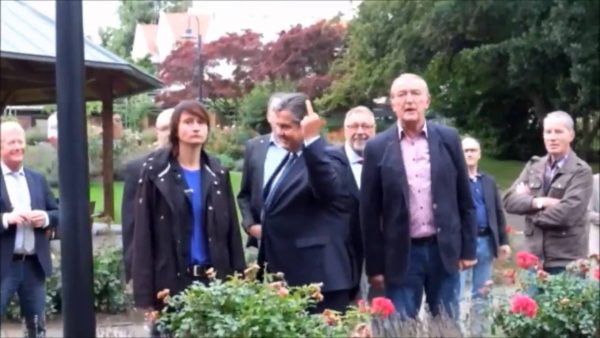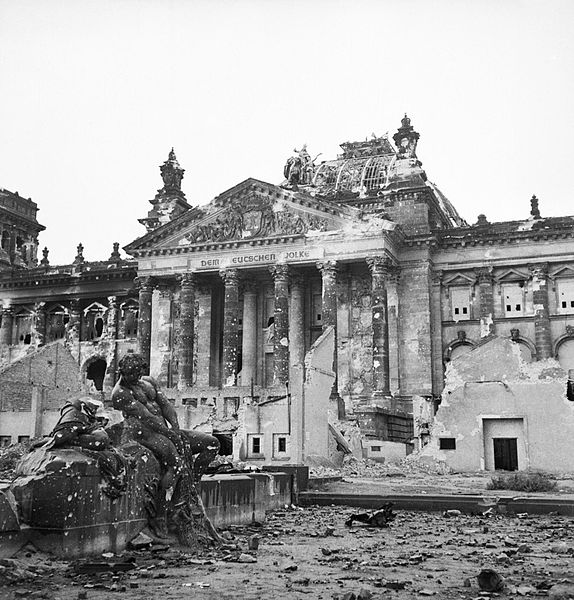Politicians tend to be very mindful and careful in public settings. Being on their best behavior, they strive for political correctness, avoiding comments or gestures that might be deemed offensive or inappropriate.
Germany’s vice chancellor, Sigmar Gabriel, a Social Democrat, dispensed with these weighty calculations during a recent election campaign event in Lower Saxony as about 20 masked protesters, later identified as members of the neo-Nazi National Democratic Party’s youth branch, rudely interrupted him.
Judging by a video posted on social media, the unruly protesters called Gabriel a “race traitor” and a “communist and cultural Marxist.” And in a reference to his late father, a Nazi sympathizer, they declared, “Your father loved his country, and what do you do? You destroy it.”
To neo-Nazis in particular, Gabriel is a reviled figure because he and his left-of-center party were firmly behind Chancellor Angela Merkel’s controversial decision to admit some one million Muslim refugees into Germany since last summer. As a result, the Social Democrats have received bomb threats and a flood of hate mail, the Guardian of London reports.
Merkel’s openness to Muslim immigrants is debatable, but it’s clear that the most ardent opponents of Germany’s liberal refugee policy are ready to take matters into their own hands, vocally or otherwise.
So when Gabriel was met by a chorus of taunts and insults from scum-of-the-earth fascists last week in the town of Salzgitter, he did not flinch. Nervously laughing at first, he raised his middle finger in a gesture of contempt and turned his back on them, making it crystal clear where he stood.

He did the right thing.
Given Germany’s Nazi interregnum, which led to a terrible war in Europe and the death of six million Jews in the Holocaust, German politicians are duty bound to stand up vigorously to neo-Nazis and their ilk.
Gabriel could have safely ignored them had he acted like a conventional politician. Instead, he veered off the straight-and-narrow path, venting dripping contempt for these dregs of German society who would bring back National Socialism if only they could.
It should be noted that Gabriel’s attitude to neo-Nazism is deeply personal. As he disclosed in an interview on the eve of the 2013 federal election, he severed his relationship with his father, Walter, when he was 18 following the discovery that he had been and still was a committed Nazi. The fact that he had been a Nazi to his “dying breath,” he added, summoned up “untameable anger” in him.

On balance, then, Gabriel had good reason to react viscerally to the neo-Nazis in his midst. He could have ignored them. He could have pretended they did not exist. He could have behaved like a run-of-the-mill politician who couldn’t be bothered with responding to their provocations.
But Gabriel, cognizant of the Nazi stain on the fabric of Germany’s history, cast aside the cumbersome baggage of political correctness and, in admirable fashion, acted on his beliefs.
He should be commended for his forthright approach.